Symposium on Transformative Gender Law: A Roger Williams Law Review Event
The Law Review symposium will be held online on Friday, November 3, 2023. The symposium will focus on the transformation in gender law over the past several decades. Speakers will discuss how gender identity or expression, sex and sexual orientation intersect with the law and a range of other identities, including but not limited to race, religion, spirituality, ethnicity, national origin, citizenship, abilities, age, and/or socioeconomic status.
9:30 AM - 3:15 PM EST (Zoom Webinar)
The symposium will be presented as a fully virtual experience. Those invited to speak will have an opportunity to publish a written piece on their topic.
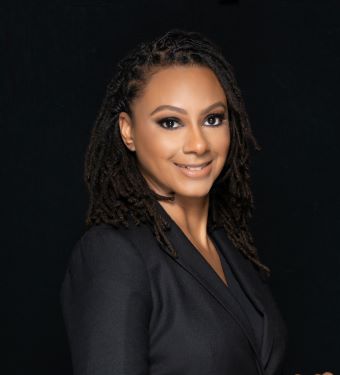
Meet the Keynote Speaker - Zakiya Thomas
Zakiya Thomas is President and CEO of the ERA Coalition and the Fund for Women’s Equality. An agent for change, Zakiya leads a diverse coalition of over 290 partner organizations, representing 80 million people, all fighting for equality. The Coalition advocates for gender, racial, and reproductive justice, LGBTQ+ rights, and much more under the unifying banner of sex equality and the goal to enshrine the Equal Rights Amendment into the US Constitution. Zakiya is an astute political strategist, adept campaign manager, and experienced nonprofit manager. Additionally, Zakiya is an Adjunct Professor at Georgetown Law teaching a nonpartisan course on how to run for political office and volunteers on several nonprofit boards ranging from protecting reproductive rights to individual financial empowerment.
Meet the Keynote Speaker Moderator

Emily J. Sack is a Professor of Law at Roger Williams University School of Law since 2001. She has become a nationally recognized expert on domestic violence and reform of the court system. As the Deputy Director for the Center for Court Innovation, Professor Sack helped develop and implement the first domestic violence courts in New York, as well as the first felony domestic violence court in the United States. U.S. Supreme Court Justice Stevens cited Professor Sack’s article The Struggle for the Future of Domestic Violence Policy in his opinion in the domestic violence case Castle Rock v. Gonzales.
Active in the community, Professor Sack is a member of the Elder Abuse Working group, assists the National District Attorney’s Association with developing elder abuse training curriculum for prosecutors, and serves as Member of the Board and Chair of EMERGE, a batterers’ intervention and parenting skills programs for men who abuse intimate partners. Prior to joining RWU, Professor Sack worked in diverse offices such as the Senate Judiciary Committee Staff of the late Edward M. Kennedy, the ACLU, and the law firm of Stillman, Friedman, & Shaw.
A magna cum laude graduate of NYU School of Law, Professor Sack earned her B.A. from Swarthmore with high honors and her M. Phil. from Columbia University. She teaches Criminal Law, Criminal Procedure, Family Law, Children and the Law, Domestic Violence Law, and Death Penalty Law. She recently served as a Visiting Associate Professor of Law at Boston College. She has published in many top journals, including the Northwestern, Wisconsin, and Washington University law reviews.
Symposium Introduction
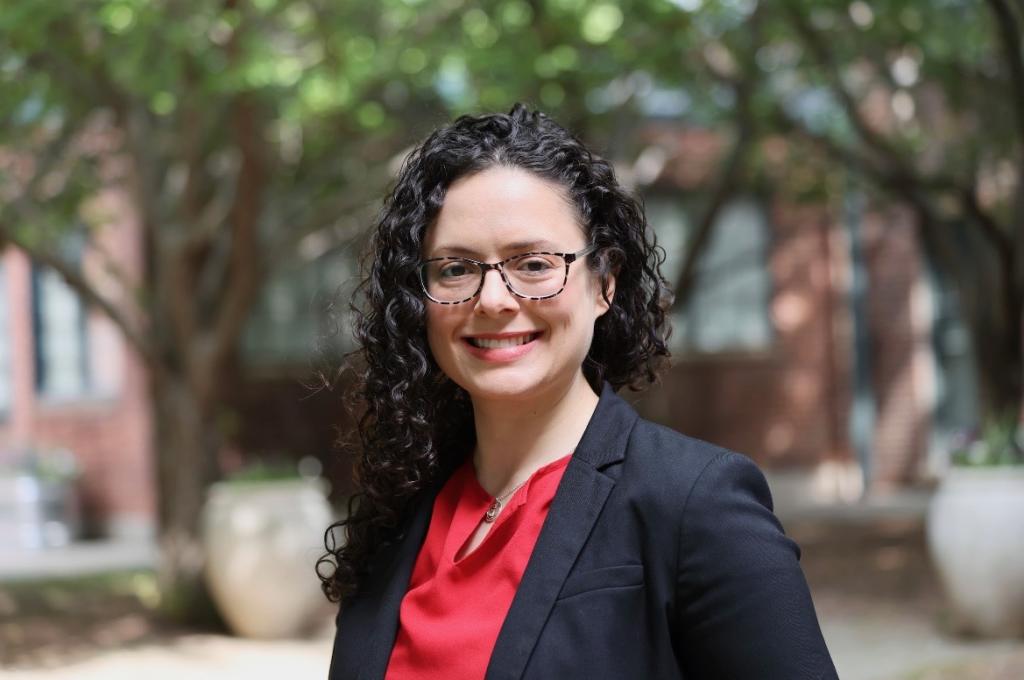
Etie-Lee Z. Schaub earned a B.A. from Macalester College in St. Paul, Minnesota with a major in Economics and a minor in Computer Science. She obtained a J.D. from Cardozo Law School, in New York, New York, cum laude with a concentration in General Litigation. In 2021, she obtained an M.B.A. from the University of Rhode Island. She is licensed to practice law in Rhode Island and Massachusetts, as well as in the federal district courts for both, and in the First Circuit Court of Appeals.
She has also served the State as a Special Assistant Attorney General.
Her work for the City of Providence focuses on defensive litigation. Her portfolio also includes advising committees of the City Council and assisting with legislative work.
Meet the Panelists - Transformations in Title IX Jurisprudence - Panel One
Title IX is one of the most transformative pieces of legislation of the past 50 years. It has had such an impact that it is rarely considered in its fullness– primarily its impact on athletics, education funding, opportunities, and sexual assault. This panel brings theory and practice together to reflect on the deep impact of this statute in our legal system and American life.

Lynette Labinger is a long-time civil rights litigator in Rhode Island. After a two-year clerkship with federal Judge Raymond Pettine, Labinger joined the law firm founded by Milton Stanzler. Stanzler was instrumental in the creation of the Rhode Island chapter of the American Civil Liberties Union and himself well known for groundbreaking litigation in the field of constitutional and civil rights.
Labinger continued her advocacy, championing constitutional and civil rights litigation throughout her years of private practice, first with Stanzler’s firm, then in a 35-year association with her partner John M. Roney, and, since 2018, limiting her practice to cases sponsored by the ACLU of RI.
Along the way, Labinger has served as trial and appellate counsel in a wide range of cases championing constitutional and civil rights. In 1980, Labinger and GLAD founder John Ward successfully challenged a local high school’s refusal to permit a male student to bring a male date to his senior prom. Labinger has represented the plaintiff class in the landmark Title IX sex discrimination case challenging the treatment of women athletes at Brown University (Cohen v. Brown University). She has litigated many high profile civil rights cases in Rhode Island, including cases involving discrimination based on race, gender, age, and disability, reproductive rights and First Amendment rights, representing a teenager in vindicating her First Amendment right not to have a religious display in her high school and representing a prison inmate in vindicating his right to practice his religion in prison. She is currently representing a class of three to five year old children with disabilities to ensure that Providence provides them federally mandated education and other services.
Labinger served as a Judge of the Housing Court of the City of Providence from 2004 to January 2019.
Labinger is a Fellow of the American College of Trial Lawyers. She is a member and Secretary of the Board of Trustees of New England Institute of Technology. Labinger has received numerous honors for her civil rights advocacy, including recognition in 2019 by the Roger Williams University Law Review as “Gender Equity Champion” and the Law School’s honorary Doctor of Laws degree in 2021.

Dr. Jennifer Stanley (she/her) is the Associate Dean for Student Life and Title IX Coordinator at Roger Williams University. She joined the “Roger” community in 1997 climbing the ranks of Residence Life, and also serving the campus as the Director of the Gender & Sexuality Center during her tenure.
Jen’s commitment to violence prevention is demonstrated through her direction of the RWU Green Dot Bystander Intervention efforts, chairing the campus Title IX Task Force, serving as a member of the Bias Response Team, and implementation of National Association of Student Personnel Administrators’ (NASPA) Culture of Respect Program, a two-year campus self-assessment to enhance sexual assault prevention efforts.
Jen is a voice for higher education leaders, serving as a member of the NASPA Region I advisory board since 2000, including a 3-year national appointment to NASPA’s Center for Women. She serves on the national board of directors of The Silent Witness Initiative, a volunteer organization addressing issues of relationship violence and represents RWU as a member of the Rhode Island Cross-Campus Learning Collaborative for Sexual Violence Prevention. Recently she was featured on the podcast “Public Health Out Loud”, focusing on sexual assault prevention on college campuses. She is the 2022 recipient of NASPA’s regional “Institutional Leadership” award.
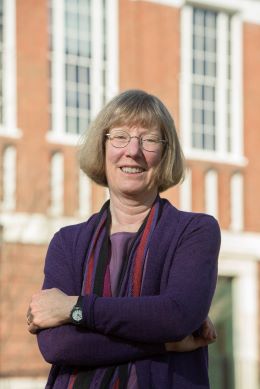
Susan Ware is an independent scholar who specializes in twentieth-century century U.S. history, women's history, and biography. Her books include Why They Marched: Untold Stories of the Women Who Fought for the Right to Vote (2019), Game, Set, Match: Billie Jean King and the Revolution in Women's Sports (2011), and Title IX: A Brief History with Documents (2007). From 2012-2022 she served as general editor of the American National Biography.
Meet the Panelists - Transformation in Transgender Rights - Panel Two
This panel will focus on the transformation in the law in regards to transgender rights and the effects on transgender individuals. There will be a brief discussion on the projection into the future.
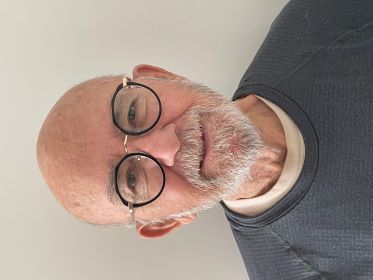
John Ward (he/him) is a lecturer at Boston University School of Law. He received his J.D. degree from B.U. Law School in 1976. After clerking for Judge Raymond Pettine in the U.S. District Court for the District of Rhode Island, he went into private practice in Boston in 1977. In 1978, in response to a pattern of police harassment of gay men, he gathered a group of community activists and founded GLAD, Gay and Lesbian Advocates and Defenders (now GLBTQ Legal Advocates and Defenders). He has handled a number of noteworthy cases involving LGBTQ clients, including the Rhode Island prom case, vindicating the right of a high school senior to bring another young man to the prom as his date, and the Boston St. Patrick’s Day Parade case. In that case, he was the first openly gay man to appear before the U.S. Supreme Court. Recently, he was co-counsel in a case involving the first transgender woman in Massachusetts to be housed in a gender-appropriate prison – MCI Framingham, defending her against what the defense alleged was a retaliatory criminal prosecution. John also represented death row inmates in post-conviction proceedings in California. John was recently selected by the History Project to receive the 2021 History maker Award. He is still in private practice in Boston and lives in Providence with his husband, Alain Balseiro.
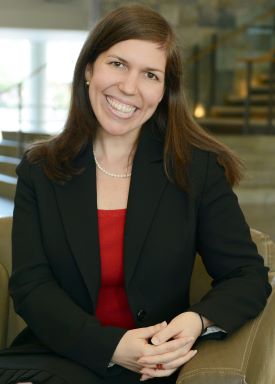
Professor Danielle Weatherby (she/her) teaches Legal Research and Writing, Employment Discrimination, Education Law, and Professional Responsibility at University of Arkansas School of Law. Prior to joining the University of Arkansas faculty in 2013, Professor Weatherby clerked for Chief Judge Gary L. Sharpe of the United States District Court for the Northern District of New York and practiced at the Albany, New York law firm, Whiteman, Osterman & Hanna, LLP, where she advised private and public sector clients on a wide range of labor, employment, and education law issues.
Professor Weatherby is a prolific scholar and dedicated teacher, winning University of Arkansas School of Law’s inaugural Dean’s Circle Faculty Aw
ard for Teaching in 2021. Her research focuses on the intersection between religious exercise and public accommodation laws, First Amendment jurisprudence and its impact on student speech, hot-button school law issues, and emerging legal protections for transgender individuals. Professor Weatherby’s recent work has appeared in some of the top legal journals including William & Mary Law Review, U.C. Davis Law Review, Florida Law Review, Washington and Lee Law Review Online, Brooklyn Law Review, Connecticut Law Review, Pepperdine Law Review, and the New York University Review of Law & Social Change. Professor Weatherby has also been published in Fortune Magazine, The Seattle Times, Detroit News, and The Conversation and has been quoted by The New York Times and The Wall Street Journal. She has appeared on Fox & Friends, PBS NewsHour, and Scripps News and has provided expert legal commentary to many other national, State, and local news publications.
Professor Weatherby is committed to public service and works to raise awareness about issues affecting minority populations, including transgender youth. In 2015, Professor Weatherby authored a civil rights ordinance, which became city law, extending anti-discrimination protections to LGBT individuals in employment, housing, and places of public accommodation. Nationally, she has served as Chair and Executive Board member of the Association of American Law Schools’ Sections on Employment Discrimination and Labor and Employment Law. She currently serves on the Arkansas Advisory Committee to the United States Civil Rights Commission.
Professor Weatherby earned her B.A. with a double major in classical Latin and Greek from Franklin and Marshall College and her J.D., cum laude, from the University of Florida, Levin College of Law. She is licensed to practice law in New York and the District of Columbia.

Lauren E. Hill (she/her) is the chief legal counsel for the Rhode Island Commission for Human Rights, the state's primary antidiscrimination law enforcement agency, which investigates violations of state and federal anti-discrimination laws in employment, housing, public accommodations, credit and delivery of services. She is also currently a 2023-2024 fellow in the Women’s Fund of Rhode Island Women’s Policy Institute. Lauren previously worked as a special assistant attorney general in the Rhode Island Attorney General’s Office, Civil Division, and she served as a 2016- 2017 Public Policy Fellow through Leadership for Education Equity in the Office of the Governor and the Rhode Island Department of Education. Lauren is a Teach For America alumna, and before becoming an attorney, she was a public high school teacher in Texas and Connecticut. Lauren holds a B.A. in journalism from the University of Oklahoma and a J.D. with highest pro bono distinction from the Sandra Day O’Connor College of Law at Arizona State University.
Meet the Symposium Moderators
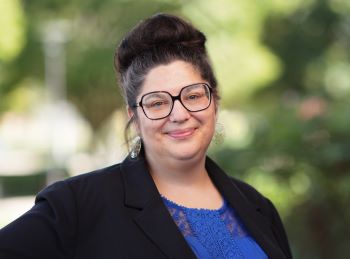
Nicole P. Dyszlewski (she/her) currently serves as a Professor and the Director of Special Programs, Academic Affairs, for the Law School. She originally joined the staff of the law school as the Research/Access Services Librarian in 2015 having come from a public legislative library before becoming the Head of Reference, Instruction, and Engagement in the law library prior to accepting her current position. She received a B.A. from Hofstra University, a J.D. from Boston University School of Law, and an M.L.I.S. from the University of Rhode Island Graduate School of Library and Information Studies. She is a member of the Massachusetts State Bar and the Rhode Island State Bar. Prior to becoming a law librarian, Nicole practiced real estate law. Her areas of interest are DEIB pedagogy in law school, mass incarceration, and access to justice.
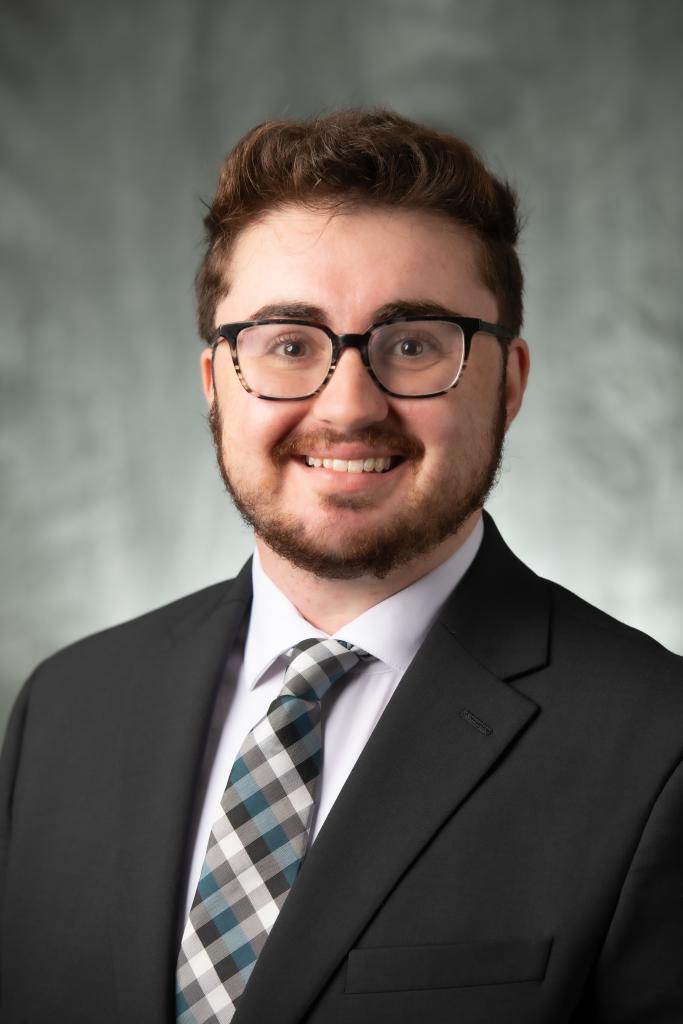
Samuel Filiaggi (he/him) is a 2L at Roger Williams University School of Law. From Batavia, Illinois, he graduated from the University of Rhode Island in 2019 where he majored in marine affairs and minored in oceanography. Samuel also came out as a transgender man at the end of his undergraduate career. He eventually decided to attend law school in order to practice marine environmental law and advocate for social change. At RWU Law, he is enrolled in the Honors Program, the President of the Phi Alpha Delta chapter, the Treasurer for the LGBT+ Alliance, and on the Student Title IX Committee. As a research assistant to Professor Monica Teixeira de Sousa, Samuel investigates how BIPOC communities advocate for their education, which includes desegregating, ensuring adequate funding, and representing their experiences in curriculum. In the summer after his 1L year, Samuel was a legal intern for the Rhode Island Center for Justice on their housing team. There, he assisted attorneys with clients facing eviction, poor conditions, and other housing-related situations where individuals would not ordinarily have access to representation. When not studying law, Samuel enjoys nature photography, baking, sea chanteys, and taking care of his guinea pigs Cannoli and Biscotti.
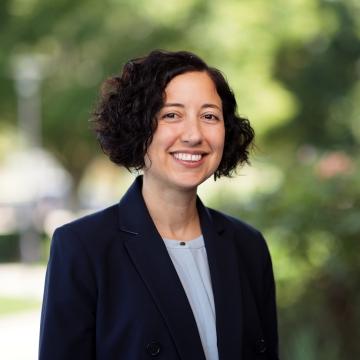
Monica Teixeira de Sousa is a Professor of Law at Roger Williams University School of Law where she teaches Property, Education Law, Family Law, and Race & the Foundations of American Law. Prior to joining the RWU Law faculty in 2022, Monica was a tenured professor at New England Law | Boston where she created and served as the director of the First Generation Students Program. Before her academic career, Monica was a staff attorney at Rhode Island Legal Services, where she began practicing in 2002 as a Skadden Fellow and created a school-based legal clinic at her former elementary school in Pawtucket. She represented parents and students in school discipline and special education cases, as well as public benefits and eviction defense matters. Monica has served as a member of the Rhode Island College Upward Bound Program Alumni Scholarship Committee since 2013, serves on the Board of Directors of the nonprofits Justice at Work and Project Weber/RENEW, and is a member of the Cape Verdean American Lawyers Association. Monica earned her JD from Georgetown Law in 2002 and her BA from Brown University in 1998.
This program is approved for five (5) Rhode Island CLE credit hours.
Questions | Stefanie.dianna.fischer@gmail.com
